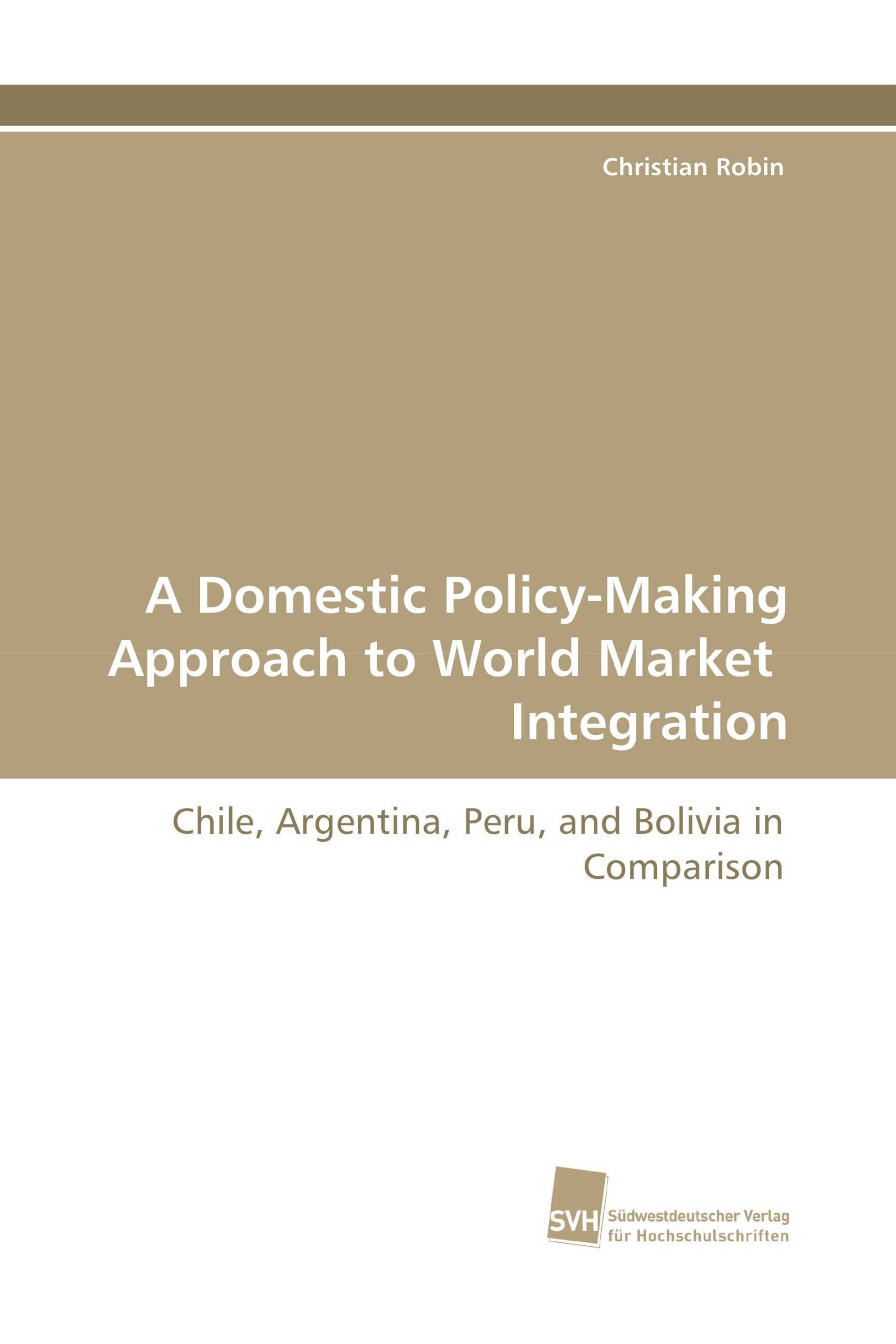A Domestic Policy-Making Approach to World Market Integration
Chile, Argentina, Peru, and Bolivia in Comparison
Suedwestdeutscher Verlag fuer Hochschulschriften ( 21.10.2008 )
€ 53,90
How, and to what extent, do successful world market integration strategies in developing countries depend on the institutional strength of state bureaucracies and business associations? Guided by this question, this study examines the systems of interest intermediation in four South America countries and responds herein to the increasingly complex nature of trade policy. Since the creation of the WTO and the emergence of a new bustling Regionalism in the 1990s, trade policy no longer refers primarily to the level of national tariffs, but implies the close coordination among a broad set of policy areas, covering both border and behind-the- border measures, and parallel negotiations on bilateral, regional and multilateral levels. This study demonstrates, in the case of Chile, that the successful world market integration of this country was strongly influenced by the institutional properties of the Foreign Affairs Ministry and the export oriented business sector, while the strategies followed by Argentina, Peru and Bolivia were not as successful, mainly due the observed institutional weakness of the state and business sectors.
Buch Details: |
|
|
ISBN-13: |
978-3-8381-0101-9 |
|
ISBN-10: |
3838101014 |
|
EAN: |
9783838101019 |
|
Buchsprache: |
Deutsch |
|
von (Autor): |
Christian Robin |
|
Seitenanzahl: |
48 |
|
Veröffentlicht am: |
21.10.2008 |
|
Kategorie: |
Politikwissenschaft |

